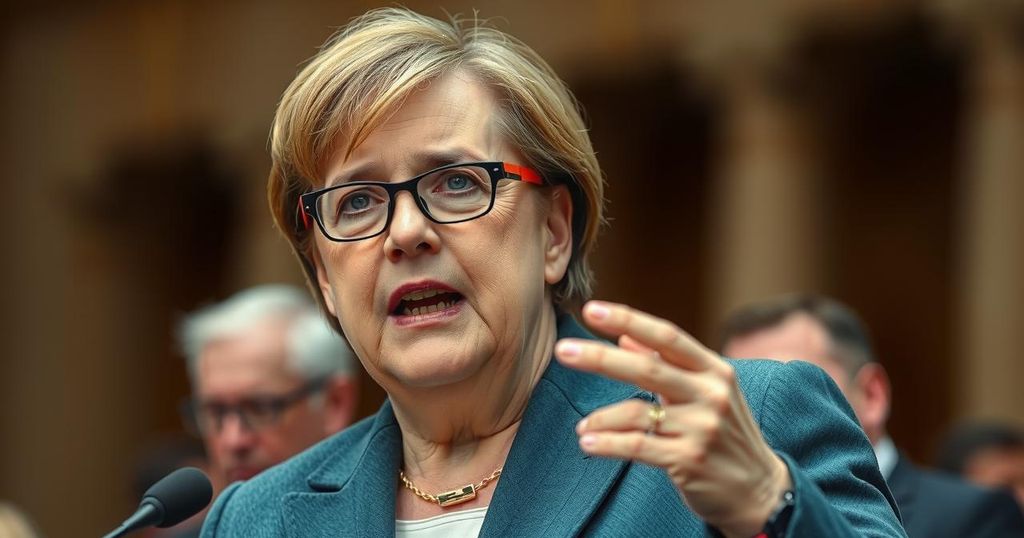Chancellor Scholz Faces Confidence Vote, Early Elections Looming in Germany

Chancellor Olaf Scholz is set to face a confidence vote in the German parliament, anticipated to lead to his defeat and early elections in February 2025. The collapse of his coalition government has intensified the political landscape, with major parties gearing up for a competitive election. Scholz emphasizes key issues for voters, including future investments and stability in Ukraine as central themes for the upcoming campaign.
Chancellor Olaf Scholz of Germany is poised to face a confidence vote in the Bundestag, expected to occur on Monday, which many believe he will lose. This development could potentially lead to early parliamentary elections scheduled for February 23, 2025, a significant shift from the original plan set for later that year. The impetus for this situation arose following the demise of Scholz’s three-party coalition on November 6, following internal conflicts leading to the departure of the finance minister and his party.
The political landscape underscored by this confidence vote illustrates the fragmentation within Scholz’s coalition, which comprises the Social Democrats, the Greens, and the pro-business Free Democrats. Currently, the Social Democrats hold 207 seats, while the Greens hold 117; however, the latter intends to abstain from voting, leaving Scholz without the required majority of 367 votes from the 733-seat parliament.
Should Scholz be defeated in the confidence vote, it will be up to President Frank-Walter Steinmeier to decide on dissolving the Bundestag within a 21-day timeframe, triggering elections within the next 60 days. Concurrently, the political landscape is becoming more competitive, with various parties preparing for the impending election. Scholz emphasized the crucial issues at stake in the election, including investment in the future and Ukraine’s stability. Meanwhile, opposition leader Friedrich Merz anticipates a challenging electoral climate for the Social Democrats.
The German political framework necessitates a confidence vote as a prelude to triggering early elections, under Article 68 of the Basic Law. This rarity, only the sixth occurrence since post-World War II, reflects an unprecedented time in German politics. Chancellor Scholz’s government faced severe internal discontent leading to its fragmentation, highlighting the ongoing struggles of coalition governance in Germany. The political landscape underscores major party tensions and the upcoming election’s significance in determining Germany’s economic direction and international stance, particularly concerning the ongoing conflict in Ukraine.
In summary, Chancellor Olaf Scholz’s confidence vote marks a pivotal moment in German politics, signaling a potential shift towards early elections. The internal rifts within the governing coalition reveal significant challenges ahead, while the opposition prepares for a competitive atmosphere. As the confidence vote looms, the political focus sharpens on the upcoming elections and their implications for Germany’s future governance and economic strategies.
Original Source: apnews.com








